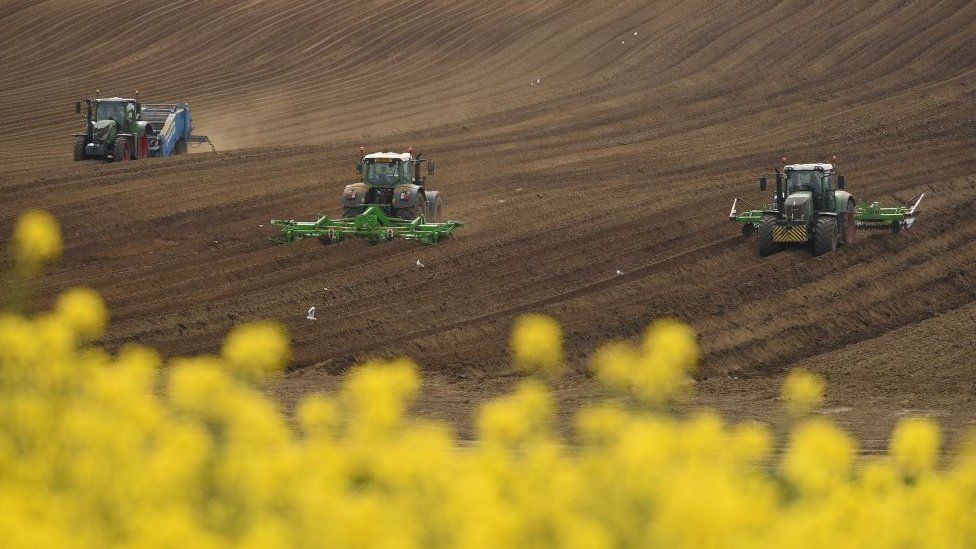ARTICLE AD BOX
 Image source, Getty Images
Image source, Getty Images
Farmers are facing labour shortages, high costs, the impacts of climate change and global political turmoil, the NFU says.
By Claire Marshall and Malcolm Prior
BBC News rural-affairs team
The "clock is ticking" for the government to protect homegrown food supply, the National Farmers' Union president has warned.
Minette Batters said farmers were still being hit by labour shortages, high costs, the impacts of climate change and global political turmoil.
Her warning comes on the first day of the NFU's annual conference.
A government spokesman said its policy ensured sustainable food production and environmental protection in farming.
Mrs Batters said agricultural costs had risen by almost 50% since 2019 and the poultry industry - severely affected by the largest recorded outbreak of bird flu - had seen UK egg production fall to its lowest level in nine years.
The country must "never take our food security for granted," she said.
"There are three cornerstones on which a prosperous farming sector must be built and which any government should use to underpin its farming policy," Mrs Batters said. "They are boosting productivity, protecting the environment and managing volatility.
"But the clock is ticking. And it's ticking for government - to start putting meaningful, tangible and effective meat on the bones of the commitments it has made."
The NFU has previously warned many farms have cut production to limit losses from high inflation and energy bills, which could threaten domestic food security and supply.
'Empty sheds'
NFU Cymru deputy president Abi Reader told BBC News shoppers could be seeing less choice when it came to British food on the supermarket shelves.
"There are empty sheds out there that should be growing fruit and veg," she said.
"There are empty sheds that should have poultry in them to produce eggs - and this food just isn't coming through the system.
"We have got massive rising costs. A lot of this is due to the war in Ukraine, some of it is that we are still trying to settle down after Brexit - but these rising input costs are so high farmers just can't afford them.
"Banks are worried about lending, so people have just contracted - businesses are producing less than they used to do."
'Rural vote'
Prime Minister Rishi Sunak will address Tuesday's conference, 'Feeding a changing world', in a pre-recorded message.
A Department for Environment, Food and Rural Affairs official said: "Backing British farmers and our rural communities is at the heart of the government's manifesto and we've committed to maintaining the £2.4bn annual farming budget which will support farmers to become more productive and profitable.
"Our new farming policies - set out in significant detail last month - ensure sustainable food production and environmental protection go hand in hand, with something on offer for every type of farmer. This has been welcomed by farmers and farming organisations."
Mrs Batters said "the rural vote will be crucial in the next election" and she would not "let the opposition off the hook either".
Labour leader Keir Starmer, who is also addressing the conference, has said Labour would protect British food standards and give farmers a better trading relationship with the EU.
The government said its trade deals would see UK farmers and food producers benefit from new opportunities to sell abroad, while animal welfare and food-safety standards would be maintained.

 1 year ago
101
1 year ago
101








 English (US) ·
English (US) ·